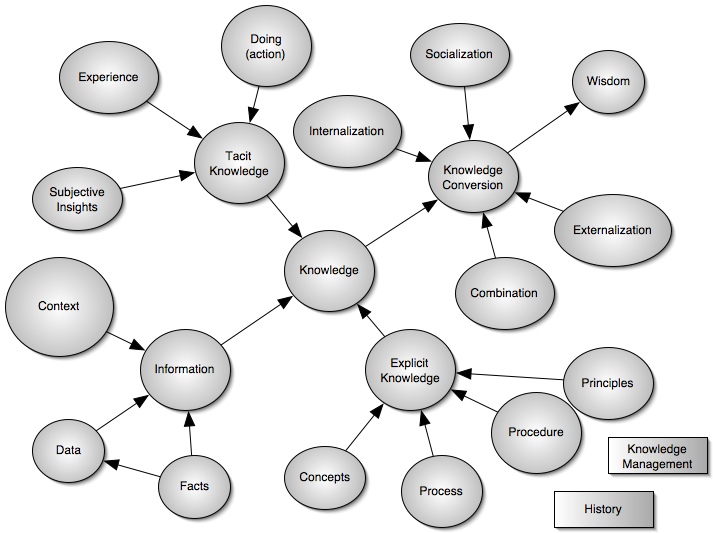Note: This site is moving to KnowledgeJump.com. Please reset your bookmark.
Michael Polanyi - Tacit Knowledge - 1964
Scientist Turned Philosopher
Genius is applying the originality of youth to the experience of maturity. - Michael Polanyi
Michael Polanyi (1891-1976), a physical chemist, was one of the most novel philosophers of sciences in the 20th century. His first selection of philosophical essays appeared in 1946 under the title Science, Faith and Society (Oxford University Press, Oxford, 1946.
We can know more than we can tell. Michael Polanyi in The Tacit Dimension (1964).
Polanyi further expounded upon the concept of tacit knowledge in his book Personal Knowledge: Towards a Post Critical Philosophy (1966). Tacit knowledge incorporates so much embedded learning that its rules may be impossible to separate, thus it is almost impossible to reproduce in a document or database. That is, tacit knowledge normally cannot be spoken, but rather demonstrated and imitated.
This fact seems obvious enough; but it is not easy to say exactly what it means. Take an example. We know a person's face, and can recognize it among a thousand, indeed among a million. Yet we usually cannot tell how we recognize a face we know. So most of this knowledge cannot be put into words. - Michael Polanyi in The Tacit Dimension
Tacit knowledge includes both conceptual and sensory information, in addition to images that are used to make sense of something. Scattered bits of tacit knowledge are often brought together to help form new models or theories. This inevitably led him to explore connoisseurship and the process of discovery, rather than with the validation and refutation of theories and models that Popper (see note below) was known for at the time.
Note
Karl Popper, a noted science philosopher, put it this way: “Scientific statements are those that can be put to the test and potentially proven wrong.” It is not possible to prove that a hypothesis is true, but if the hypothesis is tested extensively and never proven false, then one accepts it as provisionally true. And if it turns out to be false in certain situations, then it can be modified or replaced.
Next Step
Return to the Information and Knowledge page


